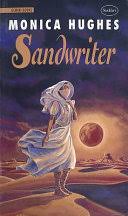When establishing your fantasy or sci-fi world, one element to take into account is time keeping. I already mentioned it in my post on anachronisms, but the way people measure the passing of time will influence their daily lives and therefore impact in one way or another in your story.
You don’t necessarily have to flesh out all the details of your world’s time measurement to your reader, as Tolkien did in Lord of the Rings (Appendix D), but you as the writer have to know them.
Is time measurement as accurate as in our world? If not, what would people say instead of “give me a minute” and how would they make appointments? Would they refer to the sun (mid-day) or the moon, for example?
In Ancient Rome, the day was made up of twelve “hours” of equal length between sunrise and sunset. As the length of days varies, so did the length of these hours.
In Monica Hughes’ fantasy duology Sandwriter/The Promise, a ten-day is the equivalent of our seven-day week.
Does your world have an equivalent of weekdays, and how are they named? Are there days that are different from the others (like our Sundays or Sabbath), or is every day the same unless it’s a special holiday?

If your story is set on a different planet, astronomy comes into the equation:
How does that planet orbit its sun? Is there more than one sun? Are there moons, and how many? Does the planet have seasons?
Also, are your characters natives of that planet and naturally use the astronomical references for time keeping? Or are they colonists from Earth and try to stick to Earth time measurements? If they have been there for several generations, have they kept it up, or are they gradually shifting to adopt the natural references of their new home?
If your story is set in space, do your characters follow Earth time-keeping? (Astronauts on the ISS, who are in close contact with Earth, work on GMT.) Or have they established a generic time-keeping system? Are they even from Earth?
All this will play into your story, as it has a direct impact on how your characters think, speak, and generally manage their time (or not).
Books I mentioned in this post:


